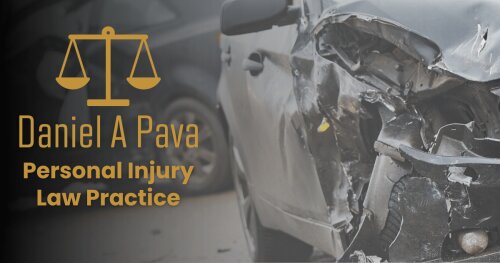Best Premises Liability Lawyers in Springfield
Share your needs with us, get contacted by law firms.
Free. Takes 2 min.
List of the best lawyers in Springfield, United States
1. About Premises Liability Law in Springfield, United States
Premises liability covers injuries that occur on someone else’s property due to dangerous conditions. In Springfield, Illinois, these claims are governed by general negligence principles under state law, not a dedicated “Premises Liability Act.” Property owners and occupiers owe a duty of reasonable care to keep their premises safe for visitors such as customers, tenants, and employees. When a hazard on the property causes injury, the injured person may have a claim for damages against the owner or manager.
In practical terms, a successful claim typically requires showing that the property owner knew or should have known about the dangerous condition and failed to take reasonable steps to fix or warn about it. Illinois courts assess factors like how long the hazard existed, whether there were prior complaints, and whether the hazard was open and obvious to a reasonable person. These cases often turn on the specific facts of the site and the party's status as an invitee, licensee, or trespasser.
Situations commonly seen in Springfield include slip and fall injuries in a storefront or restaurant, trips caused by broken stairs or loose flooring in an apartment complex, and injuries in parking lots or sidewalks where snow, ice, or potholes create hazards. A Springfield attorney can tailor guidance to local conditions, such as winter maintenance practices and property maintenance rules that may apply in city limits.
Premises liability turns on whether a property owner maintained the premises in a reasonably safe condition and warned visitors of known hazards. The duty varies by visitor status and the facts of the incident.
Source: Cornell Legal Information Institute - Premises liability
2. Why You May Need a Lawyer
In Springfield, you may benefit from legal counsel in the following real-world scenarios. Each example highlights practical steps and considerations for pursuing a claim.
- I slipped on an icy sidewalk in front of a storefront on State Street. The injury happened after a storm and the owner did not salt or shovel in a timely manner. A lawyer can determine if the owner had a duty to maintain the sidewalk and whether notice can be shown.
- I tripped on a broken stair in my rental building. The landlord or property manager knew about the defect or should have known from prior reports yet failed to repair. An attorney can assess duty, notice, and potential remedies.
- I was injured in a grocery store parking lot due to a large pothole. Parking lots fall under premises liability for commercial properties. A lawyer can help prove constructive notice and damages, including medical costs.
- I suffered a fall after a wet floor was not properly signposted inside a Springfield business. A lawyer can evaluate whether reasonable steps were taken to prevent the hazard and if signage was adequate.
- I was assaulted because of inadequate security at a shopping center. Premises liability can extend to negligent security if the owner failed to implement reasonable security measures to protect customers.
- The injury involves an open or obvious hazard that a business argues the risk was inherent. A Springfield attorney can challenge open-and-obvious defenses by examining the circumstances and warnings given.
In all cases, consider calling a local attorney early. They can help gather evidence, preserve surveillance footage, obtain maintenance records, and advise on deadlines and likely damages. Do not delay seeking medical attention, as medical records help connect injuries to the incident.
3. Local Laws Overview
Springfield is in Illinois. The state does not have a single “Premises Liability Act,” but premises liability claims rely on general tort and negligence rules, along with relevant statutes, city ordinances, and maintenance codes. Two key statutory concepts commonly cited in these matters are outlined below, along with a note on local codes that may affect property safety obligations.
- Statute of Limitations for Personal Injury - 735 ILCS 5/13-202 - This is the standard two-year period to file most personal injury lawsuits in Illinois. The clock generally starts at the time of injury, with some exceptions for discovery. If you miss this deadline, a court is likely to dismiss your case.
Illinois generally imposes a two-year statute of limitations for personal injury actions.
Source: Illinois.gov - Comparative Negligence and Fault Allocation - 735 ILCS 5/2-1116 (Modified Comparative Fault) - Illinois uses a modified comparative negligence system. Recoveries may be reduced by your own percentage of fault, and you cannot recover if your fault exceeds 50 percent.
Illinois follows a modified comparative fault approach in many civil claims, with a 51 percent bar on recovery.
Source: Justia - Illinois Premises Liability and Fault - Open and Obvious Hazards and Local Maintenance Standards - While not a single statute, Illinois courts frequently apply an open and obvious defense under common law. Local building and property maintenance codes may also impose practical duties on owners to repair or warn about hazards.
Open and obvious hazards may limit liability, depending on facts and notice.
Source: Cornell LII - Open and Obvious
Local government influence can appear through city codes and building regulations that govern property upkeep. Springfield city resources provide guidance on property maintenance and safety expectations within the city limits. For direct access to Springfield’s municipal information, see the city’s official site.
Springfield City Government hosts information about local building codes, property maintenance rules, and enforcement processes that may impact premises safety duties.
4. Frequently Asked Questions
What is premises liability in Springfield, Illinois?
Premises liability is a legal claim for injuries caused by dangerous conditions on someone else’s property. The owner or manager may be liable if they failed to keep the premises reasonably safe and warned visitors of hazards.
How do I prove a premises liability claim?
You typically must show a dangerous condition, that the owner knew or should have known about it, that they failed to fix or warn, and that you were injured as a result. Evidence includes photos, maintenance records, and medical documentation.
What is the statute of limitations for personal injury in Illinois?
Most personal injury actions must be filed within two years of the injury. Filing after the deadline can bar recovery, unless an exception applies.
Do I need to prove the owner knew about the hazard?
Yes, you generally must prove that the owner knew or should have known about the hazard, or that it was created by their negligence. Evidence of prior complaints can support constructive notice.
What is the difference between an invitee and a licensee for premises liability?
An invitee is someone invited onto the property for business purposes (customers). A licensee is a social guest with permission to be there. The duty to exercise care varies by status and circumstances.
How much can I recover for a premises liability injury?
Damages typically include medical expenses, lost wages, and pain and suffering. The amount depends on the injuries, fault allocation, and insurance or courtroom outcomes.
Can I sue for punitive damages in a premises liability case?
Punitive damages are rare in ordinary premises liability cases. They may be available only if the conduct was willful or wanton and grossly negligent.
How long does a Springfield premises liability case take to resolve?
Case timelines vary widely. Some cases settle in a few months; others proceed to trial after a year or more, depending on evidence and court schedules.
Do I need to do anything before meeting a lawyer?
Gather medical records, incident reports, photos, witness contact information, and any maintenance or inspection records. Note how the injury occurred and who may have been responsible.
Is a lawyer necessary for a simple slip and fall?
Not always, but an attorney can help evaluate notice, insurance coverage, and potential damages. They can also handle deadlines and communications with the defendant or insurer.
What should I ask when I consult a Springfield premises liability attorney?
Ask about experience with similar cases, expected timelines, fee structures, and the strategy for proving notice and fault. Also, confirm how damages will be documented.
Do I need to sue or can I settle with an insurer?
Many premises liability claims settle through negotiation with an insurer. A lawyer can negotiate and help determine if settlement is fair or if filing suit is necessary.
5. Additional Resources
These resources can provide general information about premises liability and related legal issues. They include government and legal-organization perspectives that are relevant to Springfield residents.
- American Bar Association, Tort Trial and Insurance Practice Section - A national professional association offering guidance on civil litigation and premises liability topics. ABA TIPS
- Illinois Bar Association - State-level bar organization with resources for injury, tort, and premises liability issues and referrals. Illinois Bar Association
- Nolo - Legal information and explanations on premises liability, statutes of limitations, and fault allocation in Illinois. Illinois Premises Liability Laws
6. Next Steps
- Identify potential premises liability attorneys who practice in Springfield and Illinois; look for a focused practice in personal injury and premises liability.
- Schedule a free or low-cost consultation to discuss your incident, injuries, and documents you have collected.
- Share your evidence with the attorney during the consultation, including photos, medical records, and witness statements.
- Ask about deadlines and the statute of limitations for your case to avoid missing a filing window.
- Discuss fee structures (clear terms for contingency fees or hourly rates) and expected costs.
- Get a written assessment of your case strength and potential damages, including future medical needs.
- Decide whether to pursue settlement or filing a formal lawsuit, and prepare for potential negotiations or trial dates.
Lawzana helps you find the best lawyers and law firms in Springfield through a curated and pre-screened list of qualified legal professionals. Our platform offers rankings and detailed profiles of attorneys and law firms, allowing you to compare based on practice areas, including Premises Liability, experience, and client feedback.
Each profile includes a description of the firm's areas of practice, client reviews, team members and partners, year of establishment, spoken languages, office locations, contact information, social media presence, and any published articles or resources. Most firms on our platform speak English and are experienced in both local and international legal matters.
Get a quote from top-rated law firms in Springfield, United States — quickly, securely, and without unnecessary hassle.
Disclaimer:
The information provided on this page is for general informational purposes only and does not constitute legal advice. While we strive to ensure the accuracy and relevance of the content, legal information may change over time, and interpretations of the law can vary. You should always consult with a qualified legal professional for advice specific to your situation.
We disclaim all liability for actions taken or not taken based on the content of this page. If you believe any information is incorrect or outdated, please contact us, and we will review and update it where appropriate.










